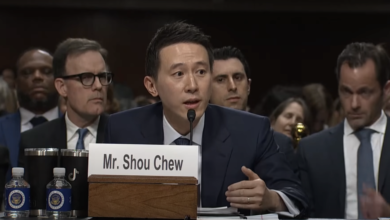The Bush administration’s proposed 2007 budget includes $439.3 billion for the Department of Defense and its “war on terror.” While that includes another $120 billion for the occupations of Iraq and Afghanistan, the Pentagon’s investment has much wider aims.

Syria and Iran are more and more in the crosshairs of the U.S. ruling class. If the U.S. anti-war movement is to keep Bush’s promised “endless war” from becoming a reality, it must recognize that the war in Iraq is not a mistake, an aberration or an example of misguided leadership. It is inherent in the U.S. imperialist system and its endless quest for profit and conquest.
On Jan. 31, in his State of the Union address, Bush congratulated the Pentagon generals for bringing Afghanistan and Iraq into the “half of the world” that lives in what he called “democratic nations.” Bush proceeded to characterize the other half—he named Syria, Burma, Zimbabwe, North Korea and Iran—as still in need of freedom.
These countries, according to Bush’s agenda, are supposed to learn the lesson of Iraq and Afghanistan. They are supposed to submit to the demands of U.S. imperialism, or they too can expect to be “liberated” by stealth bombers, missiles and tanks.
The anti-war movement has the opportunity to expose the imperial nature of U.S. foreign policy. It is a foreign policy that combines diplomatic, economic and military pressure to bring country after country into the sphere of influence of U.S. banks and corporations.
The way forward for the anti-war movement
On March 18-20, the third anniversary of the criminal invasion of Iraq, the streets in cities and towns across the country will be flooded by people standing against the war and in solidarity with the people of Iraq.

The ANSWER Coalition (Act Now to Stop War & End Racism) has called for locally and regionally coordinated actions across the country to protest the occupations of Iraq, Palestine, Afghanistan and Haiti and denounce all threats against Venezuela, Syria, Iran and North Korea. It has oriented towards a far-reaching indictment of the Empire, which exposes the government’s priorities both at home and abroad. For example, ANSWER’s lead banners at the Sept. 24, 2005, mass protests read, “From Iraq to New Orleans, Fund Peoples Needs—Not the War Machine.”
The anti-war movement can raise consciousness. As the U.S. ruling class decides on its next target, we are challenged with the opportunity to expose the Iraq war as part of a war against working people around the world and at home.
In 2004, with Bush up for re-selection, some liberal organizations silenced their anti-war message with the slogan “Anybody But Bush.” They were afraid that a principled anti-war stance would hurt the image of the Democratic Party, whose candidate John Kerry had in fact promised to “win” the war by sending additional troops to Iraq.
With the 2006 congressional elections on the horizon, the progressive movement is again faced with the question: into the Democratic Party or into the streets? In 2004, many groups around United for Peace and Justice chose the former, with negative consequences for the anti-war movement as a whole.
Those liberals now insist, “We must win back Congress.” Win back? When have workers and progressive people ever controlled Congress or the Democratic Party? Has the Democratic leadership provided any alternative or real opposition to the merciless slaughter of the Iraqi people? In 2005, the Senate—Democrats and Republicans—unanimously passed an $81 billion supplemental bill for the continuation of the war and occupation in Iraq.
Democrats, Republicans unite against Iran and Syria
The Democrats have not protested one bit against the Pentagon’s threats on Iran, Venezuela, Syria and North Korea. The Democratic Party has participated in the attacks on social programs—like President Clinton’s plan to end welfare as we know it. Can we look to an anti-worker, pro-war political party for salvation?
The Bush administration is actively pursuing aggression against Syria and Iran. “We hope the Iranian regime will heed this clear message. The world will not stand by if Iran continues on the path to a nuclear weapons capability,” threatened Condoleezza Rice. When Bush threatened Iran during his State of the Union address on Jan. 31, virtually all members of Congress—Republican and Democrat—rose to their feet to give him a standing ovation for his saber rattling.
Simultaneously, the Bush administration has stepped up its threats on Syria. Washington has blamed it for the assassination of Lebanon’s former prime minister Rafik Hariri. White House spokesman Scott McClellan said, “We remain deeply concerned about Syria’s destabilizing behavior in the Middle East and its continued support for terrorism.”
Rice and McClellan will not admit the terrorist actions of the United States, which has taken over 100,000 Iraqi lives since the “shock and awe” invasion in 2003 and over one million Iraqis who perished from the prior 15 years of economic sanctions, according to the United Nations’ own statistics. While they condemn other countries for developing nuclear capabilities, they refuse to acknowledge the U.S. arsenal of 10,000 nuclear weapons and do not mention that the United States is the only country to have ever used them.
“Our country is ready for change and a new direction. Democrats offer a vision and a new direction guided by the belief that together America can do better,” stated Howard Dean, chairman of the Democratic National Committee, in response to Bush’s State of the Union. But the Democratic Party only offers a temporary change in tactics, not a new direction.
With the whole imperialist war machine—not just one or the other political party—focused on Syria, Iran, Cuba, Venezuela and the Philippines, should we not take that as a cue and recognize both parties for what they are?
By embracing a clear, anti-imperialist program, the progressive and anti-war movements can effectively prepare for the struggles ahead. That means indicting the entire capitalist system for threats against Syria, Iran and working people around the world.
Photo: Bill Hackwell
Mass outrage sparked by a racist anti-Muslim cartoon reveals deep anti-imperialist sentiment across the Middle East. Beirut, Feb. 5, 2006.
Photo: Ramzi Haidar/AFP/Gettty Images






